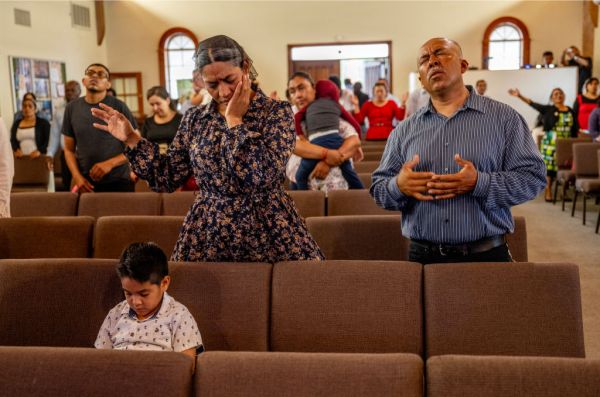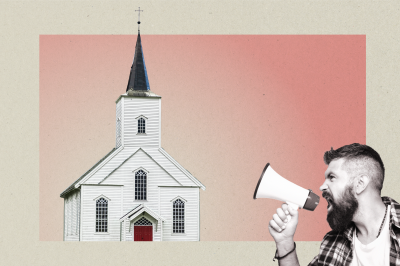Much ink has already been spilled on our fraught political moment. What may be far more disturbing to some Christians is how increasingly unsettled the church seems to be as well. Disturbing fringe voices are being mainstreamed, while figures once revered for their wisdom and exemplary lives are condemned as inadequate for an all-out culture war. Meanwhile, behavior once considered verboten by most Christians is now excused to beat the other side.
How can Christians engage with others in these times effectively while staying sane? Turns out that the answer is nothing new.
Political scientist Nils Karlson’s Reviving Classical Liberalism Against Populism examines the increase in populist movements across the globe, especially (and perhaps surprisingly) in well-developed economies. Karlson convincingly argues that populists do not hold any particular set of philosophical commitments, but rather cobble together a panicked, reactionary conglomeration of authoritarian-leaning responses to the sometimes frightening pace of cultural change. Surprise: This doesn’t work well (Karlson has the economic receipts, which are consistently bad), but it does fulfill the human longing to “do something!” when we feel threatened. Inevitably, the authoritarian tendencies of these movements cause a similar panic in their political opponents, who, ironically, also adopt authoritarian tendencies, but only to ward off the other guys’ authoritarianism. “Reactionaryism” begets more reactionaryism.
One doesn’t need to scroll Twitter for long to watch this playing out in politics, higher education, and Hollywood. But what about the church?
Surely Christians are immune to this sort of fear-based tit-for-tat. They calmly go about holy living and care for the poor and the orphan, as the Apostle James recommends. They advocate as best they can for the good and right in politics and culture, leaving the results to God. They build institutions of education and create beautiful, soul-edifying art. After all, Christians believe in the benevolent creator of the whole universe, one who entered into this world to save them, is playing out His long-term plan for the restoration of all things, and who resides with them currently through His Holy Spirit, guiding them to be full of joy through every kind of tribulation. Surely cultural upheaval won’t scare them!
I can think of many churches and organizations that have responded just as I have described above. At Washington University, just a half-mile from my home in St. Louis, John Inazu’s Carver Project and the work of Inter Varsity Christian Fellowship with Christian faculty and students will bear fruit for generations to come. The Acton Institute in Grand Rapids, Michigan, has improved the quality and thoughtfulness of Christian engagement in the economy—including effective poverty alleviation through entrepreneurship. Beautiful ministries like True Charity assist Christian nonprofits in adopting effective and dignifying approaches to charitable work. The viral TV show The Chosen has captured audiences with a creative and scripturally faithful depiction of the beauty of Jesus Christ. On Chicago’s South Side, the “Rooftop Pastor,” the Rev. Corey Brooks, is building a gorgeous resource center on “O Block,” one of the most violent blocks in the country, with money he raised by sleeping on the roof of his church until he reached his $20 million goal for the project. My own university, Concordia University Chicago, has developed the Unity and Civility in a Diverse Community curriculum to offer a Christian approach to the divisions that ail us.
The problem with mentioning specific examples is knowing that I have to cut off after just a few, but that the list itself could go on and on.
But in too many other Christian churches and organizations, three phenomena are coalescing that resemble the reactionaryism we see in other spheres of culture: 1) some mainstream evangelical figures act more like they’re on the fringe; 2) fringe characters are gaining mainstream acceptance; and 3) conservative Christians who don’t want to participate in the strangeness are being condemned and ostracized. Just what is going on here?
Eric Metaxas is one prominent figure whose behavior has been downright puzzling. A smart and thoughtful evangelical figure who seems to have lost his marbles. He recently posted a meme comparing Donald Trump to Jesus Christ; he’s boosted Mike Lindell’s claim that God miraculously provided proof of his debunked election fraud theories; he argued that Trump’s recent criminal conviction in Manhattan was the lowest point in the entire history of our republic; and now he has proclaimed Joe Biden is America’s Adolf Hitler. Metaxas is, of course, free to support Trump if he thinks that’s the best use of his vote. But these specific actions stretch from outrageous hyperbole to possibly even blasphemy. For a guy who wrote a book on someone as careful and disciplined as Dietrich Bonhoeffer, this behavior is disturbing.
We’re also seeing a shift in which views once considered far outside of the Overton window are becoming more mainstream. A public embrace of the term “Christian nationalist” wasn’t something I had on my Republican representative bingo card. More and more conservative Christian pundits are embracing white identitarianism, causing the author of Christianity and Wokeness, Owen Strachan, to be accused of going woke himself when he called out the reemergence of kinism (the view that God intends us to prefer our own ethnicity) as sinful. And the Constitution is taking hits in every direction: There is a disturbing elevation of the Constitution as sacred, through its inclusion in the “Trump Bible” (don’t miss the hilarious Saturday Night Live send-up). At the same time, others are openly arguing that the Constitution is dead and is therefore not a valid basis for political debate.
Finally, those who have faithfully served the church and their neighbors are now roundly condemned. Karen Swallow Prior, a Baptist professor who has taught at Liberty University and the Southern Baptist Theological Seminary, is somehow a progressive. She and others, like Rachel Denhollander, another serious conservative evangelical who presented the gospel to her own sex abuser in court, are being accused of nefarious intent because they want churches to take proactive steps to protect children from sexual predators. I have no opinion on whether the Presbyterian Church in America should or shouldn’t have David French (who has left the denomination) on a panel about political polarization. But I can tell you that the responses on social media to his invitation (before leaders canceled the panel altogether) were something out of a fever dream. If his detractors are to be believed, French, who has lived an unassailably zealous Christian life, fought in the legal system for pro-life and religious freedom cases for decades, and never retracted any of his conservative theological commitments, is now anathema. Why? Because he criticizes reactionary evangelical cultural engagement and has advocated for more libertarian legal approaches to the culture wars.
I could go on to pointing out the way that Tim Keller’s legacy has been treated. Suffice to say the cultural and political heresy-hunting is both tiresome and instructive. Of course, conservative Christians will be mortified by shocking cultural shifts such as the mutilation of children under the moniker of gender transition, or widespread indoctrination in the education system that America’s historical failures make it irredeemable.
So if we believe those real problems are occurring—and I do—should we reject the relaxed, even jovial, style of engagement that not very long ago we admired in thinkers like Keller?
No.
Anger is the appropriate response to injustice. But prolonged anger will also exhaust you. It’s not a good continuing motivation for action, which, in part, is why Jesus himself recommends love as a primary motivation—even love of enemies. It’s all radically counterintuitive. Jesus’ whole bit in the Sermon on the Mount about the power of asking; release from anger, hatred, lust, and worry; trusting God—it’s all, honestly, a bit hard to swallow. It’s easier to cultivate the things we tell ourselves will actually work to fight injustice: fear and anger.
In 1999, Dallas Willard won Christianity Today’s Book of the Year Award with his masterpiece, The Divine Conspiracy, in which the Baptist philosopher laments the current state of the church. Willard diagnoses both the theological right and left as each losing the central thread of the gospel in their own ways. Jesus talked about a kingdom of God that is very near. In fact, it had arrived, in Him. He taught that life spent cultivating the kind of trust in the God the Father that Jesus himself demonstrated means a life increasingly free from slavery to our petty desires and hatreds. If that’s the power that can raise the dead—as we Christians profess happened with Jesus himself—it can certainly equip me to address the pain points in the church and the world without fear of losing my hold on the truth. Can we care about women without becoming rabid feminists? Can we address America’s racial pain without being pulled into a miasma of neo-Marxist confusion? At a very practical level, can we protest pornographic material in our school libraries out of love rather than rage?
We know that it is possible, because we’ve seen it before. In Tortured for Christ, Richard Wurmbrand describes his torture in both Nazi and communist prisons for his faith. He befriended his own prison guards, preaching to them that they were deeply loved by God. Some of them converted! When the ten Boom family faced one of the greatest evils the world has ever seen, they loved their neighbors, hid them and fed them. Most of them died in the camps for their rebellion. But Corrie ten Boom lived to tell the tale, and her story, told in The Hiding Place, has inspired generations of believers. On a smaller scale, look at how a pro-life advocate does not allow himself to react to an aggressive professor. Even as he—appropriately—calls on security and she is arrested for trying to take his microphone, he continues to reassure her that Jesus loves her and he will pray for her. This is something supernatural.
Willard argued that our theological confusion led us away from the practices that cultivate this sort of inner discipline of love. “But taking love itself” he said, “God’s kind of love – into the depths of our being through spiritual formation will, by contrast, enable us to act lovingly to an extent that will be surprising even to ourselves, at first.” These practices are called spiritual disciplines. We recognize our need for them when we realize that our intellectual affirmations don’t align with our impulses. We say we believe, but we don’t act as if our beliefs are true. We say we trust, but we manipulate and control. We worship Jesus, but we don’t love our enemies or pray for those who persecute us.
Amid the constant static of fear and rage-mongering, it takes real initiative to set aside time to listen to that “still, small voice.” A six-week class on what do about resentments in light of Jesus’ teaching will be far more useful in preparing me to stand up for what’s right for my community than those same six hours spent doom-scrolling. Returning to the age-old traditions of silence, solitude, worship, fasting, sacrifice, and other spiritual disciplines is an even taller order today than ever, in this age of distraction.
However, only spiritual formation will equip us for the inevitable storms so that the resulting faddish reactionary moments will not whip us around. When the current weird moment is past (and it will pass!) and the fads have all faded, those institutions and individuals who have undertaken these disciplines will be able to—almost naturally—respond to these cultural threats with a strength and equanimity fueled by faith, hope, and love. When you stumble through their doors, bruised and battered from the culture wars, they’ll receive you with hospitality and bind up your wounds. Because “love is as strong as death,” and the love of God is entirely trustworthy.






Please note that we at The Dispatch hold ourselves, our work, and our commenters to a higher standard than other places on the internet. We welcome comments that foster genuine debate or discussion—including comments critical of us or our work—but responses that include ad hominem attacks on fellow Dispatch members or are intended to stoke fear and anger may be moderated.
With your membership, you only have the ability to comment on The Morning Dispatch articles. Consider upgrading to join the conversation everywhere.